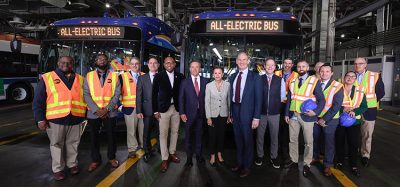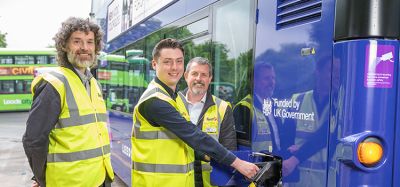Report urges London parking controls to better promote sustainable mobility
- Like
- Digg
- Del
- Tumblr
- VKontakte
- Buffer
- Love This
- Odnoklassniki
- Meneame
- Blogger
- Amazon
- Yahoo Mail
- Gmail
- AOL
- Newsvine
- HackerNews
- Evernote
- MySpace
- Mail.ru
- Viadeo
- Line
- Comments
- Yummly
- SMS
- Viber
- Telegram
- Subscribe
- Skype
- Facebook Messenger
- Kakao
- LiveJournal
- Yammer
- Edgar
- Fintel
- Mix
- Instapaper
- Copy Link
Posted: 18 March 2020 | Sam Mehmet (Intelligent Transport)
The Centre for London report claims that parking spaces in London should be redesigned so that EVs, cycling, walking and green spaces are prioritised.


A report from the Centre for London has called on councils to act more strategically with parking controls, promote alternatives to car ownership and use, and reallocate parking space to other uses that Londoners prioritise such as cycleways, disabled bays and green space.
The report, Reclaim the kerb: The future of parking and kerbside management in London, found that the annual cost of operating residential parking spaces far outstrips the price that drivers pay for residential permits, with even the most expensive permits falling short.
With more than half of London councils having declared a climate emergency and road transport contributing over 20 per cent of the city’s emissions, the report argues that the time has come to rethink parking policies and support the shift towards sustainable modes of transport.
It recommends that councils should:
- Set residential permit charges at a level that fully covers operating costs
- Review the coverage, size and operating hours of Controlled Parking Zones regularly
- Move towards an emission-based charging structure for resident permits, and escalate charges for additional vehicles.
While some boroughs might be concerned about local opposition to these changes, according to new polling commissioned for the report, Londoners overall see trees and green spaces, pavements free of clutter and children’s play space as a higher priority than on-street car parking for residents and visitors.
The report therefore recommended that councils should develop kerbside strategies that allocate road and kerb space to high-priority uses such as cycleways, electric vehicle charging, disabled bays and green space, and reallocate road space gradually through introducing a cap on the number of permits issued, and using waiting lists or limited eligibility for new residents.
Joe Wills, Senior Researcher at Centre for London, said: “Residential parking in the capital is under-priced, while Londoners prioritise green spaces and clutter-free pavements over on-street parking. With a climate emergency on our hands, councils can play an important role in encouraging the shift from car use towards walking, cycling and public transport – and many are already doing good work here. There will continue to be a place for private cars in the short and medium term, but what we need now is action. The time is right to rethink the way councils approach parking and reclaim the kerb, accelerating London towards the greener, safer, healthier city that will benefit us all.”
Related topics
Infrastructure & Urban Planning, Sustainable Urban Transport, Transport Governance & Policy
Related cities
London
Related organisations
Centre for London
Related people
Joe Wills








